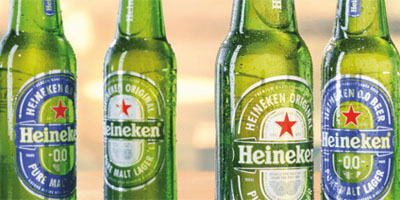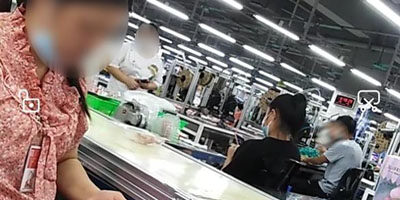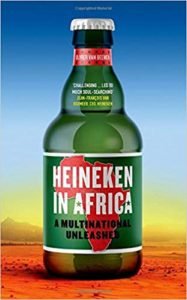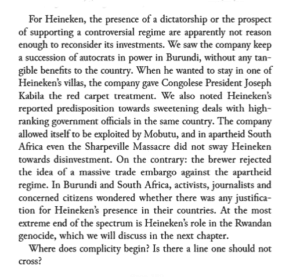Last year, Olivier Van Beemen published Heineken in Africa, a multinational unleashed, the result of six years of investigation of the famous Dutch brewer’s practices in Africa. The author makes very serious allegations ranging from a complicit attitude in the Rwandan genocide to deliberate inaction in face of repeated sexual abuses of its brand promoters.
I spoke with the author when he came to Montreal to promote his book and also contacted Heineken for its perspective. The company’s director of global communication, John-Paul Schuirink, communicated by email.
Here are their responses to the questions I asked.
Heineken places a substantial emphasis on its sustainability actions and policies. Are there governance mechanisms or organizational structures that should prevent some of the things Heineken is accused of?
Schuirink:
We recognize that Africa can be a challenging place to do business and to ensure we are in a position to tackle these challenges we created a Good Governance Platform to assess and improve our business practices.
The common denominator of all the projects is to come up with operational guidance to help our business improve its impact on the local communities where we operate.
Van Beemen:
Some big companies voluntarily keep a distance between what is happening on the field and what managers know. I think, most of the time, Heineken was aware of what was happening. It is the duty of a modern company to have a centralized system that enables managers to know what is happening in their subsidiaries.
It is interesting to note that, sometimes, Heineken’s organizational structure is more a communication tool than a real seek of effectiveness. The former human rights manager of Heineken considered that her job was a “bullshit job”. According to her, the aim of Heineken was not to defend human rights. When she tried to push for impactful projects, the company didn’t express a strong interest. She concluded that what really mattered was uniquely the existence of her job and the human rights policy of the company, not the results it had.
Schuirink:
Because we believe it is important to have an external perspective on our operations, we engage with NGOs, academia and other external stakeholders to help us identify areas for improvement.
Van Beemen:
Consulting agencies have an interest in giving a positive picture of the impacts of the company because they want to get more commands. These agencies are competing with which other, so companies choose the ones that are likely to come up with the most positive report.
Did Heineken make any changes in policy after the revelations made in the book?
Schuirink:
We have made it a priority to carefully consider the content of this book and do not agree with many claims the author makes, several of which are based on hearsay, lack substantiation, are taken out of context, or are issues which happened many years ago but are presented as if they are current.
 However, when we become aware of issues we need to address, we take decisive steps to improve our business practices. For example, when an allegation was raised regarding the safety of brand promoters working in Africa last March, we took it seriously. After consultation with brand promoters, the agencies that employ them, NGOs and others, we introduced extensive revisions to our Brand Promoters Policy in June 2018 and implemented it in full by the end of the year.
However, when we become aware of issues we need to address, we take decisive steps to improve our business practices. For example, when an allegation was raised regarding the safety of brand promoters working in Africa last March, we took it seriously. After consultation with brand promoters, the agencies that employ them, NGOs and others, we introduced extensive revisions to our Brand Promoters Policy in June 2018 and implemented it in full by the end of the year.
Van Beemen:
After the revelations, HK declared they would stop this activity within three months if they could not insure good conditions for the promoters. After this period, I went in Kenya and made a documentary to show that nothing had changed: the brand promoters were still wearing the same short tight dresses in which they felt uncomfortable and they were still victims of sexual harassment from managers and clients.
What are the compensation and/or accountability mechanisms put in place in case there is a breach?
Schuirink:
We have a strict Code of Business Conduct in place, on which we provide regular training for our employees. If an allegation of misconduct emerges through our Speak Up line, a thorough investigation is carried out to establish the facts. If conclusive evidence is found, disciplinary action is taken.
Van Beemen:
There has been no internal or legal sanction to my knowledge, and the CEO is still in charge. Yet some financers reacted: the ASN Bank stopped investing in the company while The Global Fund to Fight AIDS, Tuberculosis and Malaria suspended their partnership.
Finally, Mr. Van Beemen, Heineken asked for your views about their sustainable development strategy; did you consider collaborating with the company to help them improve their impact where they operate?
In my opinion it is very important that each actor plays its role and remains independent. The fluidity between companies, politicians, journalists and NGOs eventually benefits the companies.
The collaborations between public and private entities are very popular nowadays. Everybody claims to have the same interests. In fact, governments and many NGOs just fall in line behind companies’ interests. The absence of safeguards enables Heineken to have bad practices in Africa while sustaining a win-all narrative.
More information about the book: https://heinekeninafrika.wordpress.com/heineken-in-africa/
More information about Heineken’s sustainability reporting: https://www.theheinekencompany.com/sustainability/reporting





